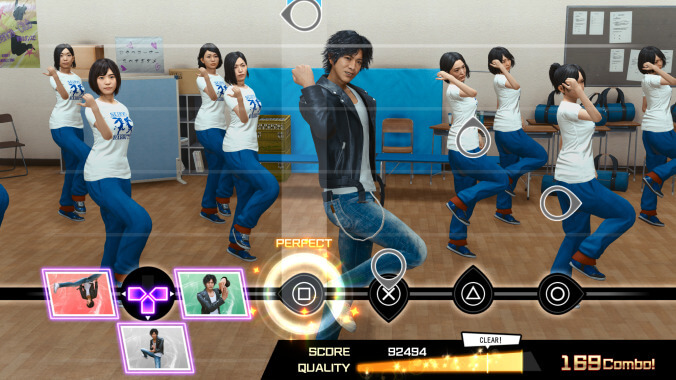Lost Judgment is a faithful recreation of living a completely absurd life
Sega's latest Yakuza spin-off is frustrating and fun and boring and ridiculously over-the-top, just like life

Every Friday, A.V. Club staffers kick off our weekly open thread for the discussion of gaming plans and recent gaming glories, but of course, the real action is down in the comments, where we invite you to answer our eternal question: What Are You Playing This Weekend?
For a medium as aesthetically and technologically diverse as video games, a lot of actual games are kind of similar. There are games where you kill things, games where you solve a puzzle, and games where you play a sport. That’s… kind of it. I’m being reductive, I know, but the point I’m trying to make here is that the folks at Ryu Ga Gotoku Studio, the developer behind the Yakuza franchise, have landed on something in 2019’s Judgment and its new sequel, Lost Judgement, that isn’t really any of those things. Or maybe it’s all of those things? Lost Judgment is kind of The Most video game, in the sense that it contains little bits of every other video game, but it also is so unlike almost literally anything else—and I don’t mean in terms of video games, I mean anything else—that it’s difficult to really quantify.
Not to be all “let’s back up,” but, well: Lost Judgment is a follow-up to Judgment, a sort-of spin-off of the cult hit Yakuza series. In both games, you play as lawyer-turned-private investigator Takayuki Yagami, a man who spends his life either solving mysteries (ranging in stakes from “completely meaningless” to “life and death”) or getting into ridiculous, over-the-top fistfights with random assholes walking down the street. I wanted to like the original a lot, because that all sounds great on paper, but I ultimately found the story and the game’s world a little stiff and cold.
I felt the same way at the start of Lost Judgment. I like the main characters and I still love the idea of solving crimes in Tokyo, but so much of its moment-to-moment gameplay is so outrageously tedious that I once again started tuning out until the next time I was prompted to hit a button. Lost Judgment is the kind of game where you’ll be told to walk to a door, then you’ll walk to the door and hit the “open door” button, triggering a cutscene where Yagami enters a room, talks to the people in that room, and is then asked to have a seat. The cutscene will then end, you’ll get control of Yagami back so you can push forward on the control stick for two seconds and walk him over to a nearby chair, and then another cutscene will trigger.
